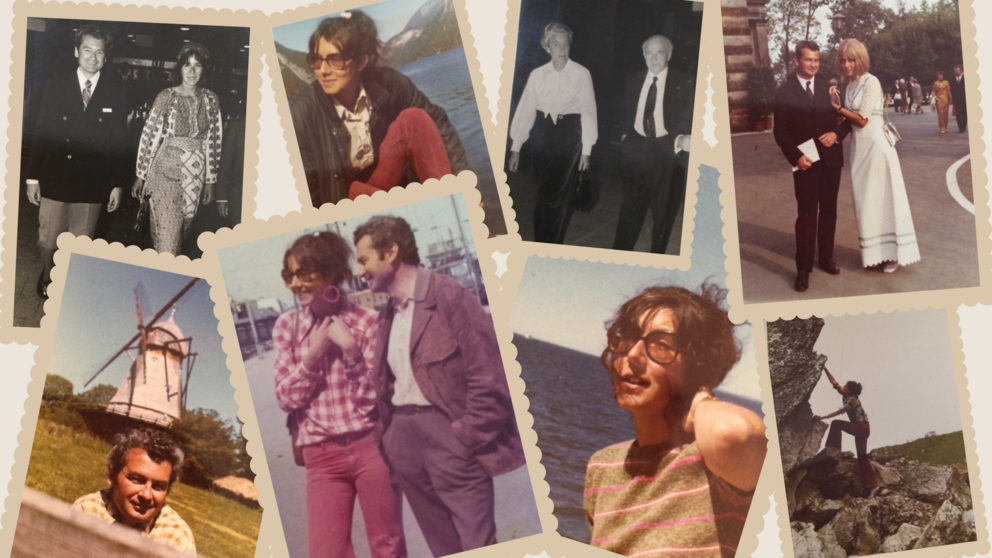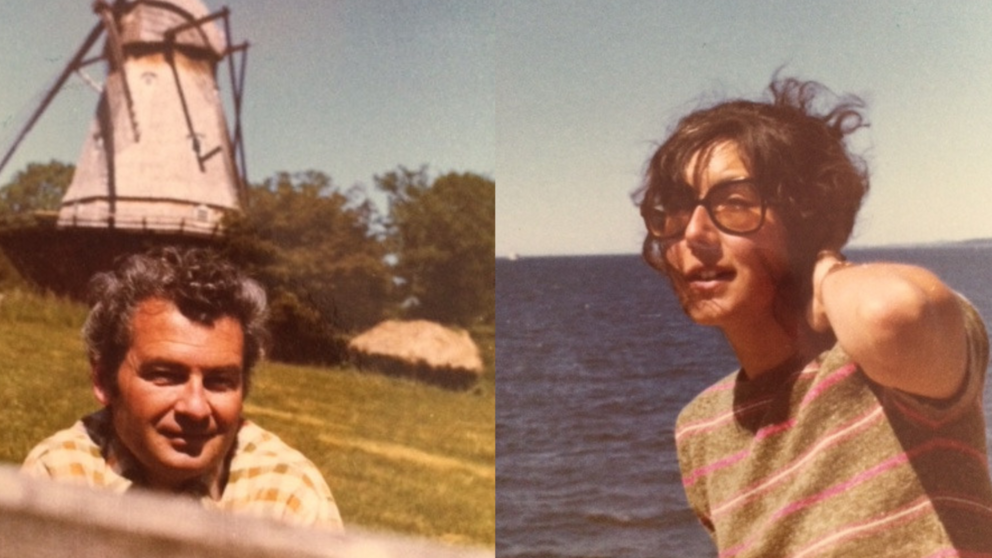

Contact
Press, Communications and Marketing
Tel.: +49 228 833-144
Fax: +49 228 833-441
presse[at]avh.de
The coincidence of a lifetime occurred on a Monday afternoon in the spring of 1972 at the reception of a hotel in Nuremberg. “I was waiting for the Humboldt tour group. A Romanian colleague introduced me to Luisa. I had no idea what would follow!” says 92-year-old Mircea Flonta. At the time, more than 50 years ago, the Romanian philosopher was a Humboldt Research Fellow in Germany, as was the biologist, physiologist and neuroscientist, Luisa Flonta. Nuremberg was one stop on the study tour the Humboldt Foundation offers its sponsorship recipients during their research stay. To this day, contemporary fellows travel around Germany together in the summer to get to know the cultural, economic, political and social life of the country better.
On the coach, Luisa and Mircea sat next to each other, discussed their subjects and found lots to talk about. That was how it all started. And this encounter nearly didn’t happen at all. “It was pure coincidence that we got to know each other,” says Mircea Flonta who was conducting research in the Philosophy Department at LMU Munich at the time. He was only able to take part in the study tour because a place had become available at the last moment. “In Bucharest we both worked at the same university – but we had never met.”
On the road together
When 80-year-old Luisa Flonta now looks back on how they got to know each other, she remembers their travels together. “We travelled all over Europe – by car to Belgium, France, Norway, Sweden, Denmark and Italy, where we spent nearly a month. We wanted to make the most of this freedom,” says Luisa. Back in Romania, the Communist regime of Nicolae Ceaușescu was in power. “We knew that it would be difficult to get another passport once we were back in Romania,” she remembers – a challenge Luisa had already had to face before her research stay at the Munich Institute for Diabetes Research. “I only knew just before leaving whether I would get a passport. A friend of my father’s, who was a mathematician like him, had pulled strings at the ministry for me. Somebody had to take responsibility for me to definitely coming back.”

Scientific exchange in challenging times
When Romania and Germany established diplomatic relations in 1967, Romanian researchers could apply for a Humboldt Fellowship. Whilst Luisa already knew about the fellowship, Mircea only discovered it when the Ministry of Education called upon him to apply. “I still don’t know who suggested me. On the whole, the authorities were more interested in natural scientists.” When he first went to university at the beginning of the 1950s, political cleansing was taking place in philosophy departments. “Professors were replaced by academics loyal to the regime; books were removed from libraries. It was hardly possible to work professionally at the time,” Mircea Flonta remembers.
It was only in the mid-1960s that western textbooks appeared on library shelves again. Flonta specialised in the philosophy of language and science and was thus able to work independently of Communist ideology. He describes his Humboldt Research Fellowship as a turning-point. “It was a huge opportunity for me. Philosophical thought exercises can’t be learned in theory, they have to be experienced in practice.” A valuable connection even now: He and his wife are still in contact with other alumnae and alumni, for instance at the regular meetings of the alumni association of the Humboldt Club of Romania.
Luisa, who previously worked as a biologist and physiologist doing research, amongst other things, on the endocrine pancreas and was a lecturer at the University of Bucharest, was also shaped by the time she spent at the Institute for Diabetes Research in Munich, headed by Professor Otto Wieland. During her stay at the institute, she detected cell receptors for insulin in adipocytes for the first time. “In those three years, I learned a great deal. I would like to have stayed longer. But my parents received a letter from the authorities saying I would lose my job at the university if I didn’t return to Bucharest immediately.”
A gift from heaven
In 1974, Luisa Flonta returned to the University of Bucharest and embarked on a life together with Mircea Flonta whom she soon married, and they had three sons. Thanks to her mother, Zoe Călugăreanu, she was able to continue her scientific career. “She was always there for us. Without her, I couldn’t have followed this path,” says Luisa. In the mid-1990s, for instance, she established the Master’s course in neurobiology at the University of Bucharest and discovered certain mechanisms in thermoreception at the beginning of the 2000s.
She still holds lectures on cognitive neurobiology today. Mircea also still holds lectures in philosophy, for example at the Humboldt Club of Romania. “As a young person from a modest background I would never have believed that I could have a career one day. Prestige and power are important to many people. For me, there is something sublime about having intellectual experiences on a daily basis,” says Mircea. “It is a gift from heaven still to be active at my age.”
Just like the coincidence that brought him and Luisa together. And what he particularly appreciates about her, “From a woman like Luisa you can learn to enjoy life beyond research.” “And what I like about him is that he is a very good story-teller and, like me, loves classical music and travel,” she says. Sometimes they talk about philosophy, such as the question as to whether free will exists. Luisa says, “From the neuroscience point of view, thoughts and emotions are, of course, determined by the brain and an individual’s own history.” Mircea counters, “Philosophers have reservations about this question. So, we always have plenty to discuss.” Just as they did on the coach during the Humboldt study tour in 1972.
Text: Esther Sambale
